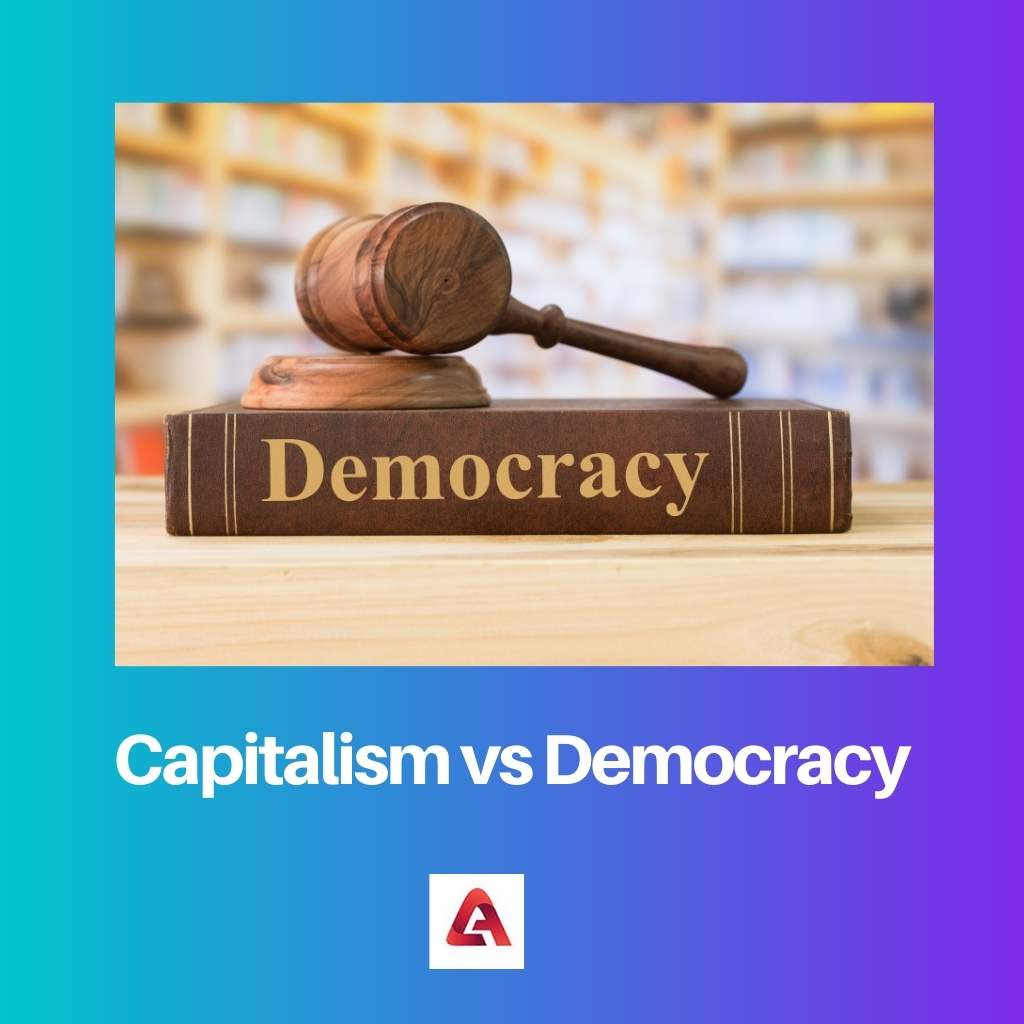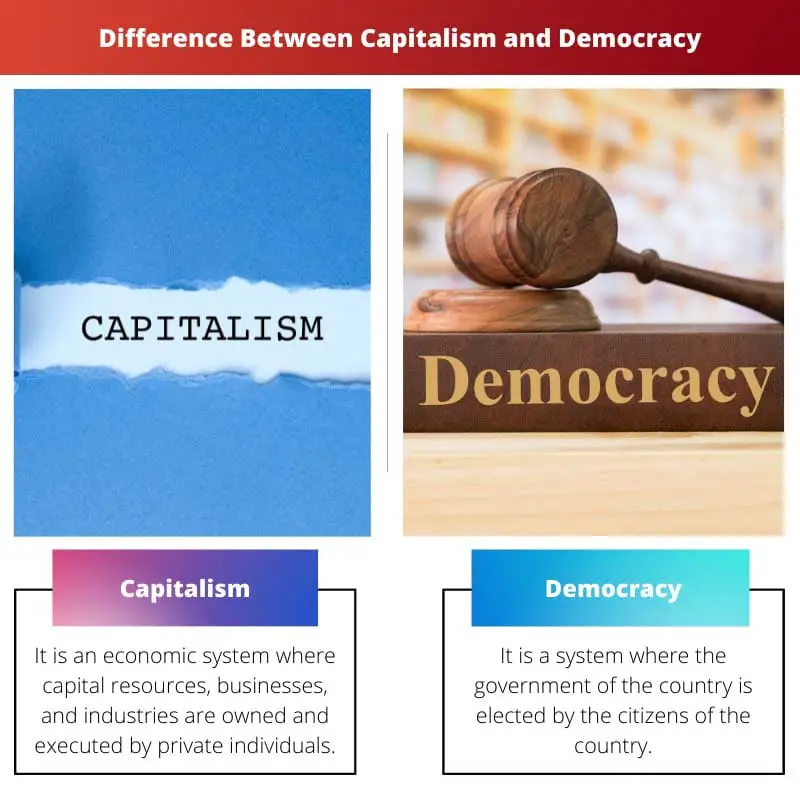The Terms “Capitalism” and “Democracy” are very different. Capitalism is an economic system where private individuals own Capital resources, and not by the government.
Democracy, on the other hand, is a type of governance where the citizens of a country elect their representative to work as their leader.
Key Takeaways
- Capitalism is an economic system based on private ownership of the means of production and the creation of goods and services for profit.
- Democracy is a political system where power rests with the people, and decisions are made through voting and representation.
- Capitalism is an economic system, while democracy is a political system.
Capitalism vs Democracy
Capitalism is an economic system where all the resources are owned by businesses and individuals and the production and sale is decided by what people wish to buy. Democracy is a government chosen by its people and units of a country have freedom of decision making and full individual rights.

Capitalism is an economic system where private individuals own and run businesses and industries. In this type of economy, the government has no role in fixing the prices of products and services.
And their entire profits and losses are acquired by the private owners themselves. Democracy is a kind of government system where the common public has the power to choose their leaders among themselves.
The public also has the power to remove these leaders from their position if they do not work toward the development and growth of the citizens.
Comparison Table
| Parameters of Comparison | Capitalism | Democracy |
|---|---|---|
| Meaning | It is an economic system where private individuals own and execute capital resources, businesses, and industries. | It is a system where the citizens of the country elect the government of the country. |
| Relevance | Economics | Politics |
| All-round Purpose | Individual’s profit | Social welfare |
| Growth Parameter | Concentrates only on the individual’s growth | All-round social and country growth is looked upon |
| Division of Classes | Capitalism divides society into poor and rich. | Democracy focuses on equality; thus, it does not divide society into classes. |
What is Capitalism?
Capitalism refers to an economic system where the factors of production, capital resources, natural resources, and entrepreneurship are owned and managed by private individuals. The prices and production of goods and services are dependent on the market forces, i.e., demand and supply of the economy.
- The driving force of a capitalist economy is profit earning. All industries and individuals work for their profit.
- In this system, every individual, i.e., consumers as well as producers, have the right to make their own economic decisions without any interference.
- Social welfare is overlooked in a capitalist economy, as the producers work for a profit. But overall growth is good in such type of economy as everyone works towards profit maximization and earnings.
- There is no interference of the government in the market, and hence the economy under capitalism is also known as a free-market economy.
- Capitalism originated in 18th-century England during the Industrial Revolution.
- Some examples of countries having capitalist economies are:- Hong Kong, United Arab Emirates, Singapore, New Zealand, Australia, Canada, Switzerland, United Kingdom, United States, and Ireland.

What is Democracy?
Democracy is a type of government where people have the right and power to decide the legislation or choose the officials and leaders to do it. It is also said to be the government of the people, by the people, and for the people.
- There are 2 types of democracies:- • Direct Democracy • Representative Democracy.
- The driving force of democracy is the social and economic development of all sections of society.
- In a democratic country, free and fair elections are held periodically for all the roles in a government. The elections act as a voice of the public and the primary way by which they control and make changes in the government.
- Transparency and impartiality are the main rules of an election. All adult citizens, regardless of their caste, creed, status, gender, or sexuality, have the right to vote.
- One of the prominent features of democracy is that it gives equal citizenship rights to each and every citizen of the country, irrespective of whether they are from a minority group or oppressed class. The legal authorities should assist them in retaining an equal lifestyle as any other citizen of the country.
- Democracy promotes the exercise of sovereignty.

Main Difference Between Capitalism and Democracy
The main difference between Capitalism and democracy is that capitalism is a system of the economy or a form of governance where private individuals own all the capital resources and factors of production. Whereas, Democracy is a type of government or a political system where all the citizens of the country equally hold power or control of the country.
- Capitalism is an economic concept, while democracy is a political concept.
- One significant difference between capitalism and democracy is that capitalism promotes private benefit, whereas democracy promotes social welfare.
- Capitalism creates extremely unequal societies and amplifies the gap between rich and poor; Democracy endeavors to create equal, just, and free societies.
- In a capitalist system, there is no intervention of government in the economy. Meanwhile, in a democracy, the government has a say in the economic sector, and it protects workers’ rights.
- Capitalism circles mainly around the rich individuals who own the industries. On the other hand, Democracy includes all the individuals and citizens of the country.





